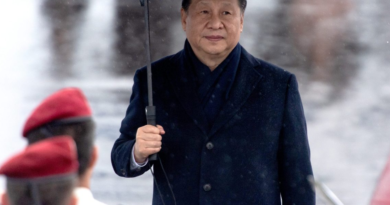BYD wants ‘nearly half’ of its sales to come from overseas as it spends billions in new factories outside of China
China’s top-selling automaker BYD Co. expects overseas deliveries to account for almost half of total sales in the future, suggesting it will continue to set up global production hubs to overcome punishing tariffs.
“Our overseas market will account for a relatively large proportion of our global sales in the future,” Executive Vice President Stella Li in an interview at the company’s Shenzhen headquarters on Monday. Asked to be more specific, she said “nearly half” of sales will come from overseas.
While Li didn’t give a specific time frame for the global sales goal, it would require a huge increase in production and deliveries. BYD is on track to hit 500,000 overseas sales this year, having reached 270,000 in the first seven months—accounting for around 14% of its overall total. BYD’s overall target is to sell approximately 3.6 million fully electric and plug-in hybrid cars in 2024, mostly in its home market.
To achieve the global goal, BYD is investing billions of dollars on production facilities in Europe, Asia and South America to serve local markets and skirt trade barriers being thrown up against Chinese electric vehicles. The European Union earlier this month imposed an additional 17% duty on BYD cars, while Canada and the U.S. have both slapped 100% levies on Chinese EVs, accusing China of cheating on trade by subsidizing its auto industry.
BYD has a factory up and running in Thailand, and more manufacturing capacity being built in Hungary, Brazil and Turkey. It has committed to build a plant in Indonesia and is poised to sign a production deal in Mexico. To build its brand awareness outside China, it last month signed a deal with Uber Technologies Inc. to put 100,000 EVs onto the ride-hailing company’s platform, and was one of the major sponsors of the Euro 2024 and Copa America soccer tournaments.
The international push will likely feature in a robust financial report—and rising first-half net income—that BYD will release later Wednesday.
The 50% global sales goal probably won’t be achieved until the end of the decade, according to Bloomberg Intelligence China auto analyst Joanna Chen.
“That 50% mix is at least a 2030 story, or even later,” Chen said. “Among Chinese OEMs (original equipment manufacturers), Chery Auto’s current mix is roughly half export and half domestic. It was the earliest to go overseas and is now the largest Chinese OEM in terms of exports. Others still depend heavily on the domestic market.”
BYD has been selling well in countries like Brazil, Israel, Thailand and Australia, but European drivers remain less enthused about buying an EV, reflecting the broader trouble for legacy and new players across the continent. BYD has also become the dominant force in its home market, overtaking established western automakers like Volkswagen AG to sell 3 million units last year.
Data Centers
BYD is also setting up its own data centers in individual European countries as it expands its autonomous and internet-connected cars, Li said.
The data collected won’t be sent to China, she said, heading off data security concerns, something the U.S. is seeking to tackle.
Efforts to keep customer data safe mirrors a commitment by rival EV maker Xpeng Inc. to set up large-scale data centers in Europe to cope with software data collection in its intelligent-driving cars.
In our new special issue, a Wall Street legend gets a radical makeover, a tale of crypto iniquity, misbehaving poultry royalty, and more.
Read the stories.



